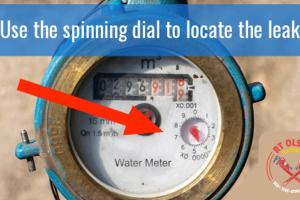Ultimate Guide: How to Detect Water Leaks in Your Home Effortlessly

-
Quick Links:
- Introduction
- Understanding Water Leaks
- Common Signs of Water Leaks
- Tools for Leak Detection
- Step-by-Step Guide to Finding Water Leaks
- Case Studies
- Expert Insights
- Preventive Measures
- Conclusion
- FAQs
Introduction
Water leaks are a common problem for homeowners, leading to costly repairs and potential structural damage. In this extensive guide, we will explore how to effectively detect water leaks in your home. From understanding the signs to utilizing the right tools, we'll provide you with actionable steps to safeguard your property.
Understanding Water Leaks
A water leak can occur for various reasons, including aging pipes, fluctuating temperatures, and faulty appliances. Understanding the types of leaks is essential:
- Visible Leaks: These leaks can be seen, such as dripping faucets or puddles on the floor.
- Hidden Leaks: These are more insidious and can occur behind walls or under floors.
- Slab Leaks: These leaks occur in the water lines beneath the concrete slab of your home.
Common Signs of Water Leaks
Identifying water leaks early can save you money and prevent damage. Here are some common signs to look for:
- Unexplained increases in your water bill
- Water stains on ceilings or walls
- Mold or mildew growth
- Sound of running water when no taps are on
- Wet spots on floors or carpets
Tools for Leak Detection
Having the right tools can make detecting leaks much easier:
- Moisture Meter: Measures moisture levels in walls and floors.
- Infrared Camera: Detects temperature differences that could indicate leaks.
- Acoustic Listening Devices: Amplify sounds of water leaks in pipes.
- Water Leak Detection Apps: Some apps can help monitor your water usage and identify leaks.
Step-by-Step Guide to Finding Water Leaks
Step 1: Check Your Water Meter
Turn off all water sources in your home and note the water meter reading. After a few hours, check the meter again. If the reading has changed, you likely have a leak.
Step 2: Inspect Common Areas
Look at areas prone to leaks, such as:
- Under sinks
- Behind toilets
- Near washing machines
- Basements and crawl spaces
Step 3: Use Your Senses
Pay attention to unusual sounds and smells. The sound of running water or musty odors can indicate hidden leaks.
Step 4: Monitor Your Water Bill
An unexplained spike in your water bill may signal a leak. Compare current bills to previous months to identify discrepancies.
Step 5: Conduct a Dye Test
For toilet leaks, add food coloring to the tank. If the color seeps into the bowl without flushing, you have a leak.
Case Studies
Consider the following examples of homeowners who successfully detected water leaks:
Case Study 1: Jessica noticed her water bill increased by 30%. After checking her meter and inspecting her home, she found a leaky faucet that had gone unnoticed.
Case Study 2: Mark utilized an infrared camera and discovered a hidden leak in his basement walls, preventing significant water damage.
Expert Insights
We consulted plumbing experts on the importance of regular maintenance:
"Routine checks of your plumbing system can help you catch leaks before they become major issues," says John Smith, a certified plumber.
Preventive Measures
To avoid future leaks:
- Regularly inspect and maintain plumbing fixtures.
- Install water leak detectors.
- Seal cracks in walls and foundations.
- Consider periodic professional plumbing inspections.
Conclusion
Detecting water leaks in your home is crucial for maintaining your property and preventing costly damage. By following the steps outlined in this guide, you can effectively identify and address leaks before they escalate. Don't forget to implement preventive measures to protect your home long-term!
FAQs
1. What are the most common causes of water leaks?
The most common causes include aging pipes, faulty appliances, and fluctuating temperatures.
2. How can I detect a hidden leak?
Check your water meter, look for signs of water damage, and use moisture meters or infrared cameras.
3. How do I know if my toilet is leaking?
Conduct a dye test by adding food coloring to the tank and waiting for 30 minutes.
4. What should I do if I find a leak?
Shut off the water supply and contact a professional plumber for repairs.
5. Can I fix a leak myself?
Minor leaks can often be repaired by homeowners, but it's best to consult a professional for major issues.
6. How often should I check for leaks?
It's recommended to check for leaks at least once a year or after heavy rainfall.
7. What are the consequences of ignoring a leak?
Ignoring a leak can lead to extensive water damage, mold growth, and increased utility bills.
8. Do water leak detection products work?
Yes, many water leak detection products are effective and can provide peace of mind.
9. How can I prevent leaks in my home?
Regular maintenance, installing leak detectors, and sealing cracks can help prevent leaks.
10. Should I get professional help for leak detection?
If you suspect a serious leak, it's advisable to hire a professional plumber for a thorough inspection.